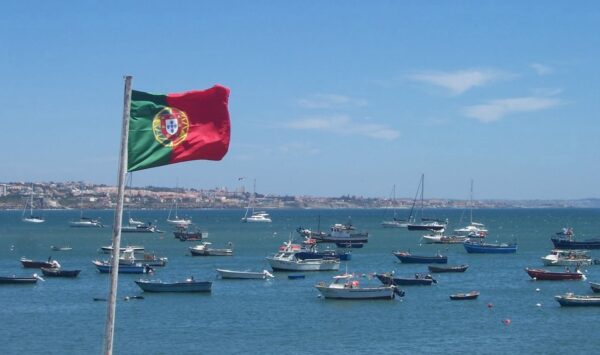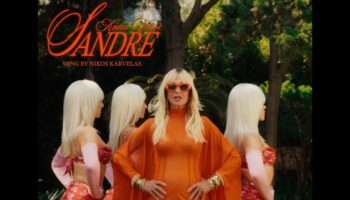2017 was a remarkable year in Eurovision Song Contest history. Confounding expectations, Portugal lifted its first trophy in an tenacious 53 years of participation. In this new series, we celebrate some of Salvador Sobral’s most successful predecessors. They may not have come quite as close to gold, but they did provide Portugal with some welcome highlights on the long road to victory. We start with the singer whose record Salvador broke: Lúcia Moniz.
1996 was an unusual year for Eurovision in itself. After experimenting since 1993 with relegation methods for unsuccessful countries, the EBU decided to try a different tactic: a preliminary round. In what was almost a behind-closed-doors precursor to the modern semifinal system, 29 countries submitted audio versions of the national entries for judging. Seven would not make it; after coming 21st out of 23 at the 1995 edition of the contest, qualification for Portugal seemed far from a done deal.
Inclusivity and diversity… A recurring theme
It was a 20-year-old Lúcia Moniz representing the country, fresh from a very narrow win at that year’s Festival da Canção, just four points ahead of her nearest rival. Her song, “O meu coração não tem cor” (My heart has no colour), espoused the same celebration of inclusivity and diversity in the Portuguese world that the 1995 entry had. That year, Tó Cruz had failed to impress the juries in Dublin with his gospel number on the same theme. “Baunilha e chocolate” (Vanilla and chocolate) sank like a stone, ending the night with a mere five points.
And for sure, Lúcia’s entry failed to get off to a flying start. Portugal qualified for Oslo, but not far above the cut-off of 22nd place.
Lusitanian magic
However, something special came together at the final in Oslo that May. In a striking red dress emblazoned with national emblems, and flanked by four backing singers with traditional percussion instruments, Lúcia gave a simple, but innocently charming performance. The effect was heightened by a relentlessly cheerful, foot-tapping orchestral arrangement; some nifty special video effects completed the show (a crafty transition to black and white at the refrain My heart has no colour). Certainly, what came together on the stage at the Oslo Spektrum was a league apart from the simple audio version of the preliminaries.
The net effect was to create a happy little musical island, just a couple of songs into the evening’s proceedings. And by the time countries came to award their points, the effect became obvious: Portugal was picking up marks all over the continent. Most excitingly, there were two sets of douze points in there, from Cyprus and Norway.
By the end of the voting, Estonia had only just edged Portugal out of the top five by two points; six more and Portugal would have beaten Croatia into fourth. But even in sixth, Lúcia had managed a record that would not be beaten until Salvador Sobral finally took the contest home this year; sixth place was Portugal’s best ever placing in its previous 52 years of competing.
Life after Eurovision
These days, Lúcia is still known as a singer and actress in Portugal, her most recent album release being the collaboration Calendário with Tozé Santos and Luís Portugal. She has been the Portuguese voice of animated princesses and heroines, amongst others, the Portuguese version of Don Bluth’s Anastasia. On an international front, she managed to land the part of Aurélia in the hugely successful British romantic comedy Love Actually in 2003, a role she reprised in the made-for-TV charity sequel Red Nose Day Actually with the BBC in 2017.
Lúcia retains the record of Portugal’s second-best placement in the history of the Eurovision Song Contest – still some accolade. Will Salvador’s win see in a new golden age for Portugal’s participation? Or will Lúcia hold on to her record for a while longer?




